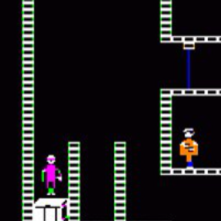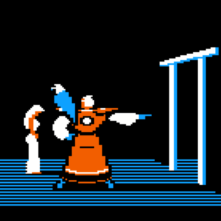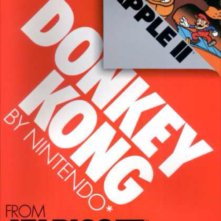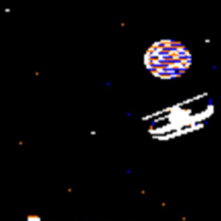Prince of Persia is turning 30!
| July 15th, 2019 11:46 AM by Ken Gagne | Filed under Game trail; Comments Off on Prince of Persia is turning 30! |
The original Prince of Persia game turns thirty years old this October 3, and in anticipation of that anniversary, the game’s original creator, Jordan Mechner, has some news to share.
First, his 1980s development journals, which were previously published in paperback and ebook editions, will be re-published in hardcopy with new illustrations. This version will come from Stripe Press, whose "books contain entirely new material, some are collections of existing work reimagined, and others are republications of previous works that have remained relevant over time or have renewed relevance today." The book will be finalized in time for the game’s release anniversary this fall, with autographed editions available next February at PAX East, an annual video game convention that Mechner keynoted in 2012. Since Juiced.GS already reviewed the paperbacks back in 2013, we probably won’t go as in-depth with the new release, though we’ll certainly report the news in DumplinGS!
Being able to publish a book is as magical to Mechner as making a game once was. The democratization of publication he something he attributes the Apple II to initiating:
For me as a kid who dreamed of creating mass entertainment, in the pre-internet days, when you still needed a printing press to make a book and a film lab to make a movie, the Apple II was a game-changer: a technological innovation that empowered every user to innovate. Suddenly, I didn’t need adult permission (or funding) to tell a story of adventure that might reach thousands — and ultimately millions — of people.
Second, Mechner was recently interviewed at Gamelab, a game development conference held in Barcelona. Venturebeat has an edited transcript in which Mechner recalls some of his original inspirations:
Anybody here remember Choplifter? This blew my mind in 1982. It was the first game I’d played that told a story. Asteroids, Space Invaders, you had three lives and you had to get a high score. All of that was based on the business model of putting quarters into machines. Choplifter told a story, and at the end it said "The End." That was the inspiration for my next game, Karateka.

Jordan Mechner plays Prince of Persia in 1989.
Third, Mechner not only reflected on the past but also looked to the future, noting that there is no new Prince of Persia game to announce — yet:
Many of you have asked when there will be a new PoP game (or movie, or TV series). If you feel that it’s been a long time since the last one, you’re not alone. I wish I had a magic dagger to accelerate the process… [but I’m] in the midst of longer-term projects whose announcement is still a ways off.
Until the new books and possible new games come out, there’s still plenty of Prince of Persia to enjoy. The source code is publicly available; maybe someone can hack in a two-player mode, as Charles Mangin did with Karateka.














